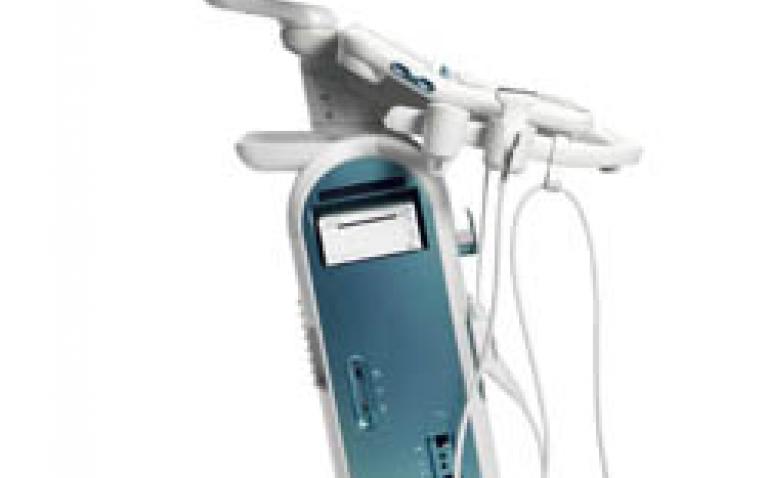Esaote, one of the world’s leading manufacturers of medical diagnostic systems, is launching MyLab™Six, a fast, accurate and highly flexible enhanced ultrasound system at ESC (European Society of Cardiology, Barcelona, 30th August – 3rd September).
Configured for an extensive range of applications, MyLab™Six delivers a premium quality, yet affordable, solution for shared ultrasound services across any busy clinical setting.
MyLab™Six is a complete cart-based system that can be used across a broad range of applications from cardiovascular to general imaging and women’s health. It comes with highly advanced CV features, including Compass M-Mode, Tissue Velocity Mapping, Stress Echo, XStrain™* and QIMT – combining to ensure complete confidence in any diagnosis. “MyLab™Six has been designed as the most advanced and hardest working ultrasound system in its class,” explains Giovanni Altobelli, Ultrasound Marketing Product Manager at Esaote.
“It offers a premium yet affordable solution to customers in terms of performance, flexibility of applications and mobility. Easy workflow options and automation of key options maximise patient throughput without compromising image quality or diagnostic confidence. MyLab™Six represents the extra steps we are taking in order to optimise the use of ultrasound in any specific clinical setting.”
*Available through MyLab™Desk3 software suite
Designed with ergonomics in mind
The system has been designed to meet the increasing demand from physicians, clinics and group practices wishing to offer high-quality on-site ultrasound services for their patients. MyLab™Six has been conceived with the comfort of the user as a key priority. The rotating keyboard can easily be made higher or lower according to user preference.
Similarly, an articulated arm for the screen increases comfort, as well as enabling the sharing of results with a patient or colleague quickly and easily. Ergonomic features include appleprobes – transducers that are specially shaped to keep the hand and wrist in their natural grip, helping to prevent tension in the hand from building up.
Functions organised and recalled at the touch of a button
In keeping with its aim of maximising workflow and performance for a multitude of purposes and individual users, MyLab™Six has a simplified control panel including a high resolution touchscreen display. The system has a clear and intuitive Touch function for quick and easy access to the system’s main functions. Operators can easy access to measurement and report, and can also recall at the touch of a single button the settings they have customised and organised according to clinical preferences.
Integrated wireless connectivity facilitates easy one-click networking, and an integrated printer allows the outcome of the examination to be printed without delay.
High on vision, low on noise
MyLab™Six features a class leading 19 inch widescreen LCD monitor mounted on an articulated arm for improved viewing of high sensitivity images and increased operator comfort. The system is also noiseless – enabling the sonographer to focus fully on the examination and diagnosis. Its highly efficient core is ultra low in terms of power consumption, presenting a more environmentally friendly “Green” option which costs less to run.
Incorporating advanced technologies, post processing capabilities, and supporting a range of probes, the MyLab™Six is an optimal ultrasound solution for a range of applications, and includes:
- Superb imaging, sensitive colour & spectral Doppler, and advanced features to make the system an ideal choice for cardiovascular work as well as general imaging – via both application-specific and shared services. The system configuration offers a wide variety of transducers (including transesophageal multi-plane probe) for use within many type of investigations.
- DICOM connectivity and MyLabTMDesk3 software suite* for off-line post-processing and reporting
- Remote service capabilities to quickly detect and solve system errors, improving lab efficiency and productivity
* MyLabTMDesk3 software suite is not intended or provided for an official diagnostic interpretation.










